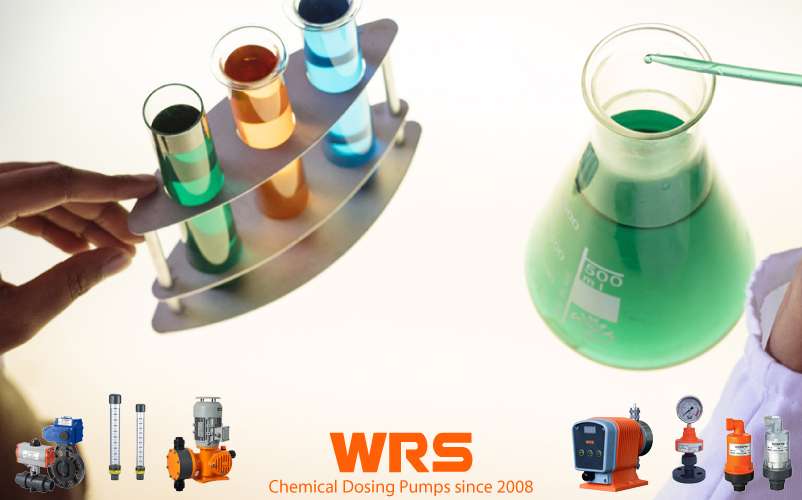
Chemical metering pumps have a wide range of applications across several industries including for water treatment plants, petrochemical plants, agricultural, distilleries, oil and gas, mining operations amongst others. The most common uses of chemical dosing pumps and dosing equipment are listed below.
The most widespread use of chemical dosing pumps can be understood as the treatment of fluids for any type of purpose, particularly water and chemicals. Water treatment applies not just to wastewater, industrial effluent or sewage but also to regular river water that needs to be purified and made drinkable for human consumption.
In many cases, large bodies of water which have uncertain levels of impurities and contamination are treated in water treatment plants even if the water is not ‘dirty per se’.
Amines to Stop Corrosion
Amines and related corrosion inhibitors are important chemicals that are routinely dosed in industrial plants. This is done largely to prevent the build-up of rust or other substances that can be harmful to machinery and plant infrastructure. Equipment such as boilers and steam turbines can be vulnerable to damage and build-up so these chemicals really help in maintenance and longevity.
Sodium Hypochlorite And Other Disinfectants
Disinfection and decontamination is a common application of dosing pumps, and this is done largely by using chemical compound called Sodium hypochlorite. Part of the composition of this chemical is Chlorine Cl2 which is used largely for disinfecting the water in swimming pools.
Sodium hypochlorite is very effective in killing germs since it eradicates the cell structure inside most germs and causes them to disintegrate quickly. This chemical has been used for many decades very safely, and when diluted in a large quantity of water, does not pose a significant threat to human health. Hence its wide usage.
pH Adjustment & Chemicals
A neutral PH level of 7 is very important for many industrial uses especially in manufacturing and or water treatment. Certain acids are dosed in order to adjust the PH level (either bring the level down or up) and they typically include Sodium bisulfate (also known as sodium hydrogen sulfate) or sulfuric acid.
It is worthwhile to note that certain levels of contamination in the water cannot be dealt with by standard disinfection methods. For this, the PH level will need to be increased to about 8.5 in most cases so that the chemicals such as Bromine (a halogen) can work better. pH adjustment can vary according to the industrial processes that each process or water treatment plant carries out.
Coagulants
Coagulants may be classified as being inorganic or organic. Coagulants or flocculants are chemicals that allow solids to group together and settle at the bottom of a body of water. Experimental studies show the efficiency of water purification procedures based on the combined use of active chlorine and coagulants and hygienically evaluated the procedures. This is very helpful when dealing with large amounts of slurry wastewater as flocculants will cause a reaction and the solids will attract other solids, making it easier to filter them out.
They are also typically cheaper than filtering large amounts of water repeatedly which is why they are popularly used in water treatment facilities as well as other industries.
More Than Just a Chemical Dosing Pump Manufacturer
The above mentioned chemicals are not all the types of chemical that can potentially be used for dosing process or within chemical metering pump systems. These chemicals, however, are the most commonly used ones in industries that utilize dosing pumps.
Got any questions related to chemical dosing? As you would agree that manufacturing Chemical Dosing Pumps since 2008 and serving over 50 countries worldwide means that you won’t be dealing with yet another metering pump manufacturer and supplier. Instead, speak with our industry experts who are ready to answer all your questions, listen to your requirements and provide options to get reliable, efficient and cost effective solutions.
